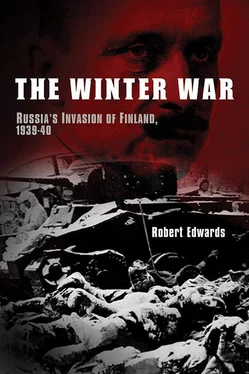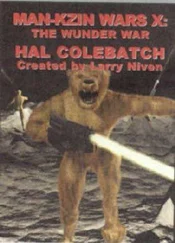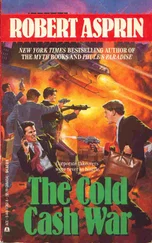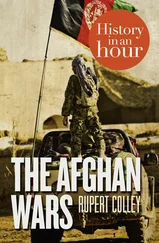R. Sontag & J. Beddie, Nazi-Soviet Relations, p. 100; a draft apparently in Stalin’s own fair hand.
By one account 800,000, against an army of 200,000.
Edward Smigly-Rydz, Marshal of Poland 1935–9, Inspector General of the Polish Army and C-in-C.
He was, he hoped, referring to the fact that Poland had acted as a bulwark for much of central Europe.
Despite the fact that, its strident atheism notwithstanding, Bolshevism was technically a Christian heresy. An indication of the moral flexibility at work from the outset is seen in the statement by Lunacharsky, the first Soviet commissar for education, who stated: ‘Christ, if He were ever to come back to earth, would immediately join the Communist party.’ See Oscar Levy, The Idiocy of Idealism, (William Hodge and Co., 1940).
Time and Tide, 8 August 1938.
J. F. C. Fuller, The Conduct of War. Fuller did his own reputation no particular good in the 1930s by being an adherent of Mosley, but his argument is none the less elegant.
Victor Gollancz, who finally wrested control of the Left Book Club back in the spring of 1940 (for reasons not unassociated with events in this book], described its branches as ‘bastard CP [Communist Party] locals’. Not, as a fellow-traveller, that he would have been particularly concerned, save, of course, at Soviet conduct.
Her magnum opus (with husband Sidney)— The Soviet Union: A New Civilisation?— had recently been reissued by the Left Book Club pointedly, without the question mark.
The Diaries of Beatrice Webb, vol. IV, p. 441.
Cadogan Diary, p. 218.
HMSO. Documents on German Foreign Policy, series D, vol. VIII, no. 131.
Dutch-built and delivered in early 1939, the Orzel (Eagle) put in to Tallinn with an ailing captain. Pursued around the Baltic by the Kriegsmarine as well as the Red Baltic fleet, it was to finally escape, later doing sterling service.
Documents on German Foreign Policy, op. cit., no. 130.
See A. Rei, The Drama of the Baltic Peoples (Stockholm, 1970) p. 260. This passage cited by van Dyke, The Soviet Invasion of Finland, ch. I.
And all of which was at least still technically protected by an Anglo-French guarantee, as had been Poland.
In common, it seems, with many other German Foreign Service officers.
Documents on German Foreign Policy, op. cit., no. 206.
As did the Finns; a hint of collusion is presented by the form of words used by von Blücher and the press release from the Finnish Foreign Ministry.
Letter to his sister-in-law, September 1939, cited by Screen, The Finnish Years, p. 130.
Ibid., p. 130. In fact, Hitler preferred to think in terms of ‘Red Indians’.
Paasikivi was not only a financier and a lawyer, he was also a knowledgeable historian and no ostrich. His central philosophy was straightforward—Russia had to be dealt with. Some had considered him ‘soft’ on Russia—he was not, merely realistic.
Tanner, The Winter War, p. 22.
Documents on German Foreign Policy, D, VIII, no. 213.
Jakobson, The Diplomacy of the Winter War, p. 12.
Presumably, the slave camps would have to be relocated first—Karelia was dotted with them. Aside from those, there were very many trees—a commodity not exactly in short supply in Finland. But this territory would play a role later in the wider war.
When Paasikivi lost his temper he had been known to throw files, folders, paperweights, inkwells and even ashtrays at his interlocutors, but not, of course, in the Kremlin.
Jakobson, The Diplomacy of the Winter War, pp. 117-8.
Obviously no coincidence.
Tanner, p. 30.
Many, indeed, had friends and relatives in the Finnish Officer Corps.
Ernest Wigforss, Minnen, vol. III, cited by Jakobson, The Diplomacy of the Winter War.
Paasikivi, even longer. He had received his higher education there (and Novgorod) in the 1890s.
The polite request to converse in the language of the interlocutor is a common Finnish courtesy, usually for historical reasons extended to Swedes. The proposal made here, to speak a third language not Russian could, under certain circumstances, be considered rude.
Tanner, op. cit., p. 45.
Tanner, op. cit., pp. 45–6.
Tanner, op. cit., pp. 47–8.
This was a rather untypical discourtesy to a fellow-traveller—as Hedin was. Perhaps the possibilities of potential disaster had an effect on Hitler’s demeanour.
Sven Hedin, Ohne Auftrag in Berlin (Internationaler Universitätsverlag, 1950).
Hull’s memoirs are almost embarrassingly self-serving on this matter and are therefore of only slight practical use to the student. A more robust analysis is presented by William L. Langer and S. Everett Gleason in The Challenge to Isolation.
This ‘initiative’ would get even more banal. It is interesting to contrast the role played by Franklin Roosevelt here, as against that played by Theodore in the Russo-Japanese War in 1905, in which he mediated, leading to the Treaty of Portsmouth. Soviet attitudes were perhaps influenced by this; it was not an argument from which they could now withdraw.
Gripenberg, Finland and the Great Powers—Memoirs, p. 79.
Ibid., p. 80.
Ibid., p. 82.
Emphasis mine; Maisky was already on the defensive concerning, among other matters, Poland.
van Dyke, Soviet Invasion of Finland p. 19.
It is interesting that whereas the ‘intellectuals’ of the Revolution were drawn extensively from the political class, the army command was not; to prosper in the Workers’ and Peasants’ Revolutionary Army it was only sensible to talk of a shoeless and unlettered childhood, whether true or not. Several who doctored their Tsarist era resumes to fit the mould paid a very heavy price. There were some notable exceptions (like Shaposhnikov and Vasilevski), however, more of whom we shall meet shortly.
A clear reference to Mannerheim.
In fact, in the period immediately after the execution of Tukhachevski, a resurgence of middle-class values and mores made itself felt in the upper reaches of the Red Army. Foreign languages were taught routinely, as well as social graces of a kind frowned upon by strict Bolshevism—ballroom dancing, for example.
Читать дальше











